Stimmen of the Schützengraben #17 deals once more with the Alpine front (see episode #10). In the first half of the show we try to give a general impression of war in the mountains while the second half is dedicated to specific episodes and situations.
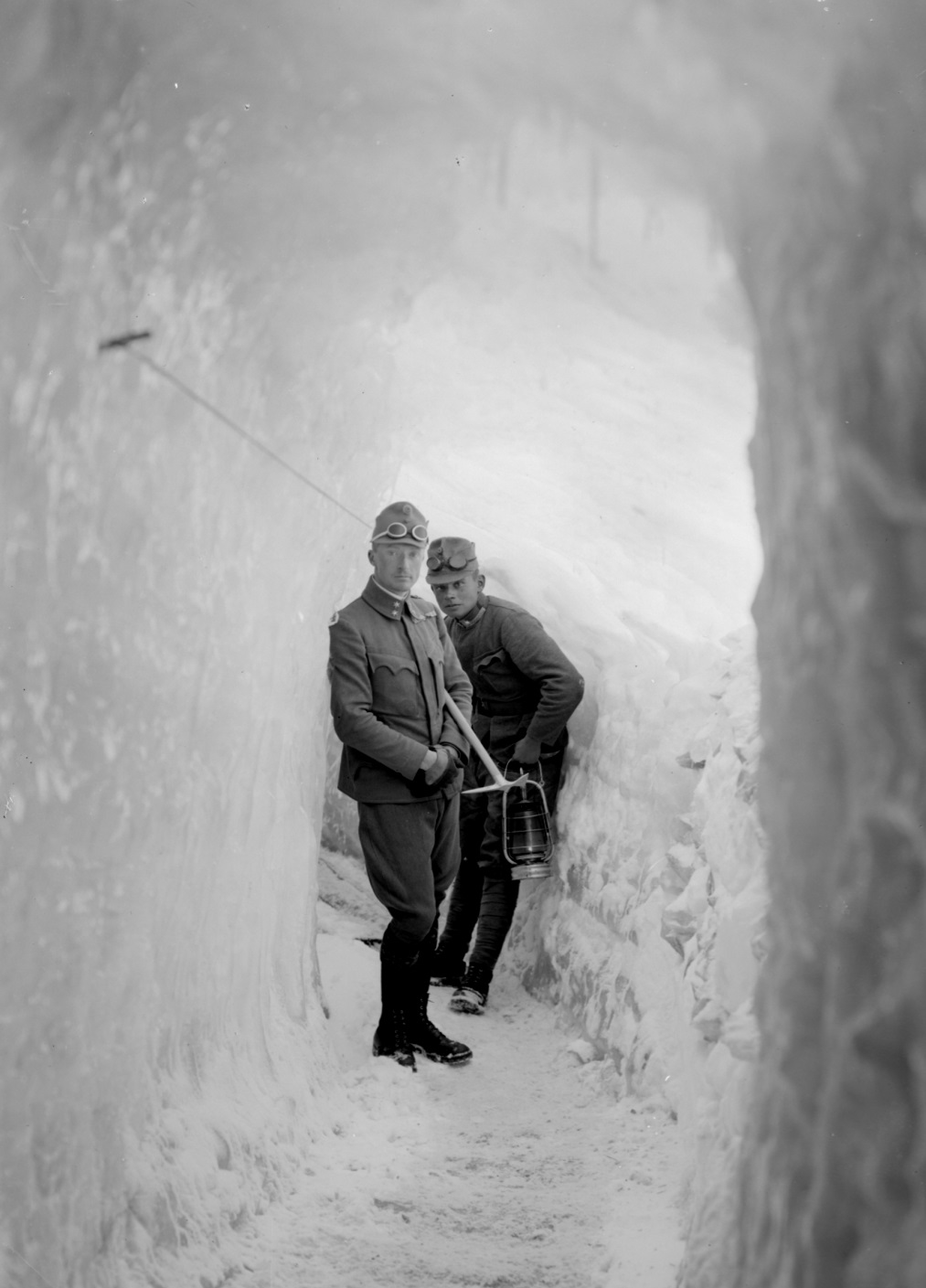
We begin with Fritz Weber (see episode #16), an Austrian Lieutenant who witnessed the war against Italy from the very first days (he was at Fort Verle when it was heavily bombed by Italian artillery in may 1915) to the very end, fighting on different scenarios such as Monte Cimone (see episode #16) and the Alpine front, but also taking part in several battles on the Isonzo front (see episodes #13, #12, #11, #5, #4, #1)). At Fort Verle Weber became friends with Luis Trenker, with whom he wrote several books related with the war on the Alps. Trenkler also directed a film on this topic, released in 1931 with the title “Bergen in Flammen”, here with Italian subtitles:
The Source of this document is the book “Der Alpenkrieg”, also published with the titles “Das Ende einer Armee” and “Das Ende der alte Armee” (for more details about the editions of this book see episode #16). The selected passage belongs to the first part of the book, “Granaten und Lawinen”. At pages 82-83 the author gives an impression of what the war in the Alps looked like: avalanches, cold, deadly nature. But also enemies that could dig silent galleries under fresh snow, spring all of a sudden out of the ground, kill and capture in the twinkling of an eye. They would then vanish in the snow, before any help could come. These pages are related to the winter 1916-1917 on Mount Pasubio.
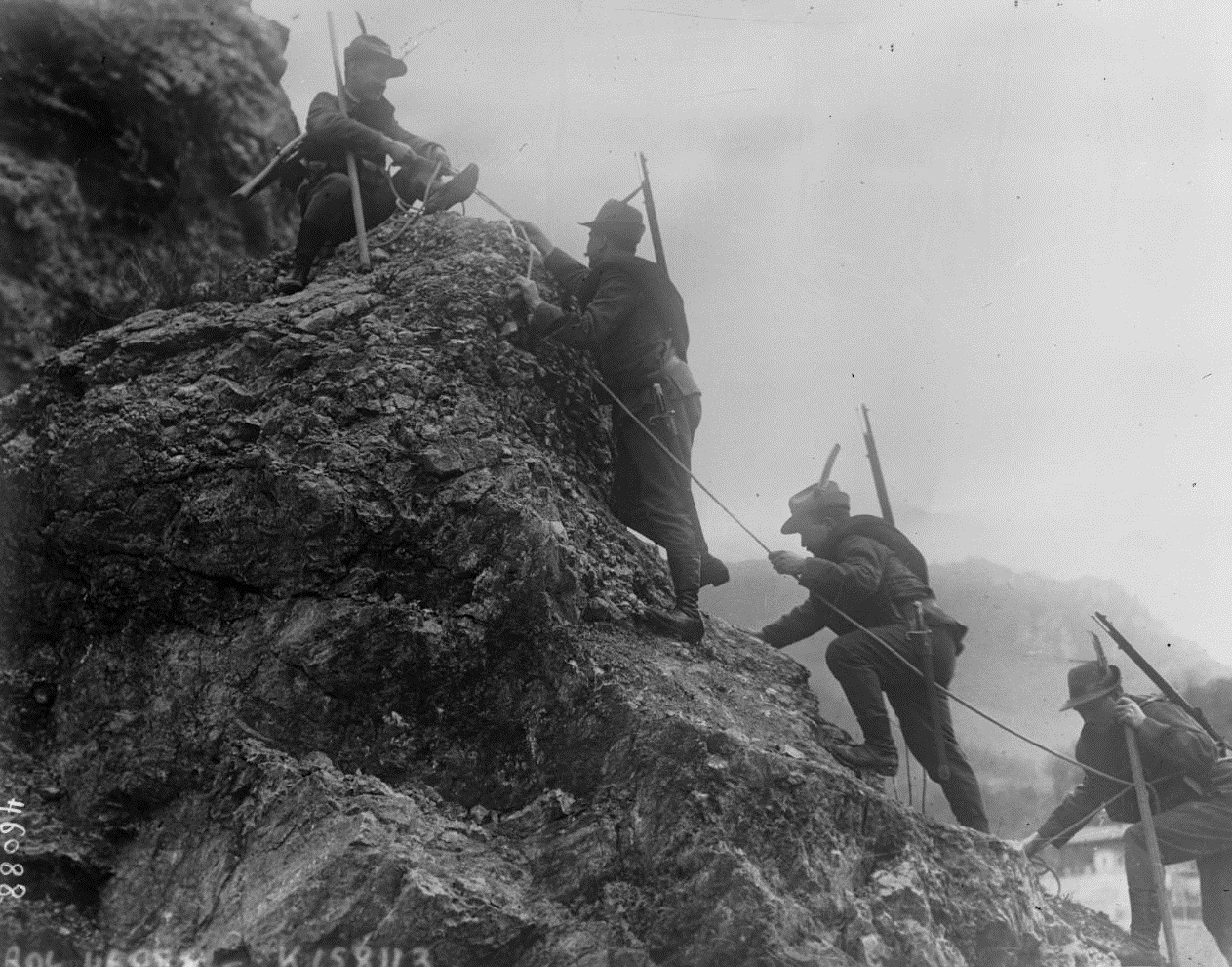
The second document of the week is a passage from the book “Un anno sul Pasubio”, by Italian officer Michele Campana. He was assigned to the infantry brigade “Liguria“, which defended a very difficult position from July to November 1916. In some sectors there were only 9 meters between Italian and Austrian lines, with only one barbed wire fence in the middle. The stress was extremely high and the soldiers had to lay on the ground most of the times, with their rifle and hand grenades ready for use.
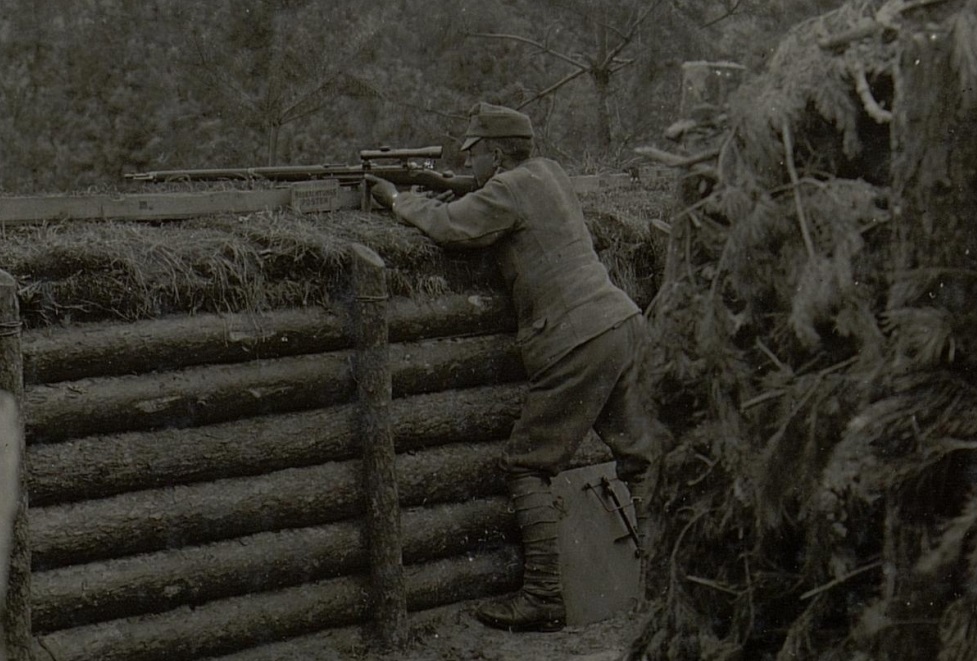
Austrian snipers were one of the biggest dangers, because they rarely missed their shot. Most of them were used to hunting big game before the war and already had a great experience with scoped rifles. Moreover, the adoption of explosive rounds by the Austro-Hungarian Army is well documented, although their use was forbidden against human targets by the Saint Petersburg Declaration of 1868. Their shots, usually aimed at the head, were extremely deadly.
In his book, Campana recalls a conversation with one of these snipers. The man came from Tirol and had been taken prisoner, but still carried with pride the case of a rifle scope.
Curiosity: the Italian word for “sniper” is “cecchino“. During WWI Italian soldiers often referred to the enemy as “Cecco Beppe“, short form of “Francesco Giuseppe” (Fanz Josef, the Austrian Kaiser). “Cecchino” is a further diminutive of “Cecco Beppe”. It is not possible to say who started using this ironical nickname to identify the invisible threat, but it became so popular that it is still part of the common language. Using a common man’s name for the enemy is a well documented practice: British soldiers were called “Tommys” by the Germans, who in return were called “Fritz” by the British. Similar nicknames were used during WWII, and during the Vietnam War American troops referred to the Vietcong as “Charlie”.
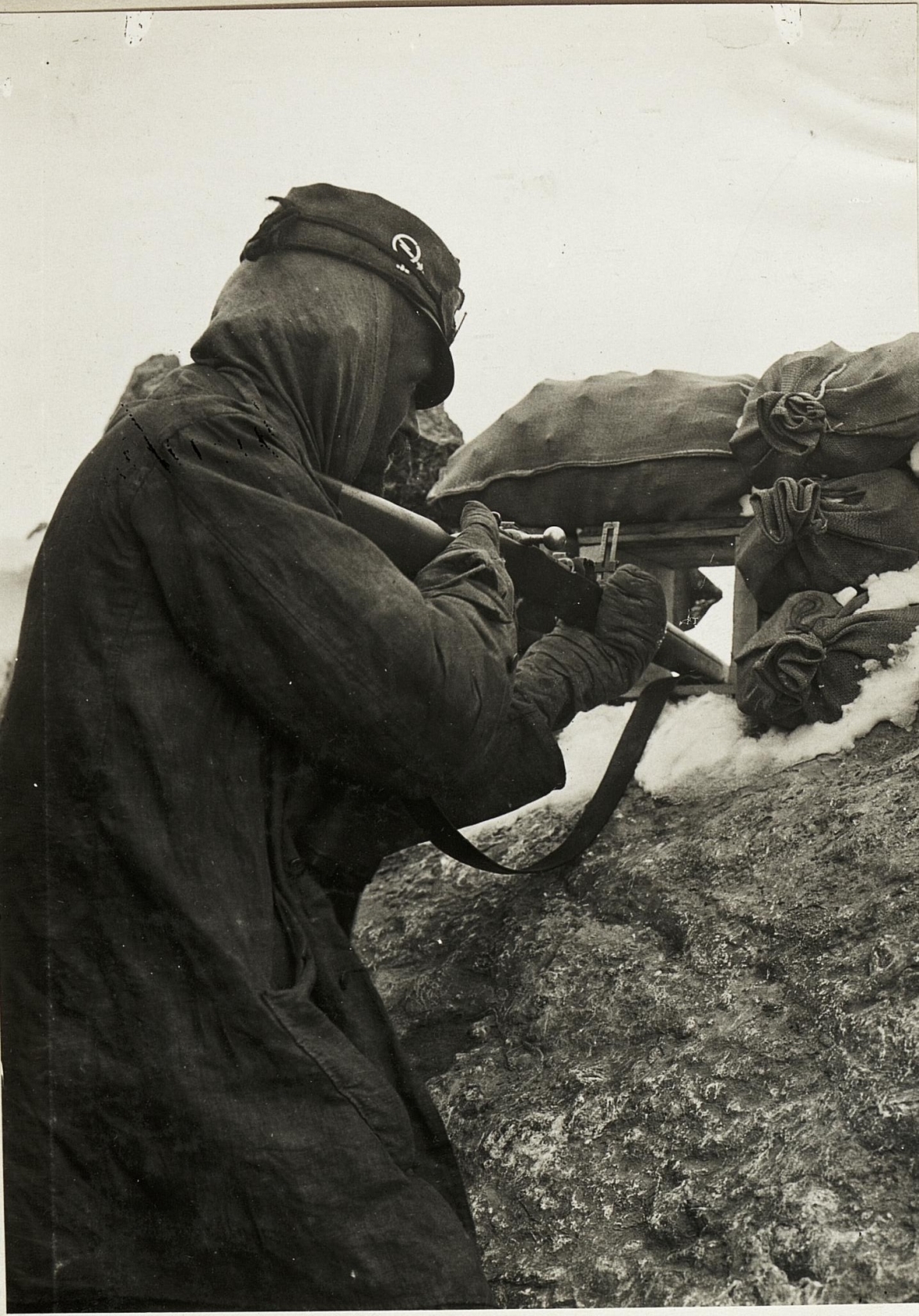
The third document is an extract from the war journal of Thomas Bergner (see episode #10). The was written on the 24 July 1915 in the Soča valley, and it shows how hard the life on the mountains was, even in summer. the weather was windy and rainy, very cold, and the only source of drinkable water was the snow in the fissures between rocks, that soldiers had to fetch risking their lives. A transcription of the diaries and letters of Thomas Bergner is available at: http://www.europeana1914-1918.eu/en/contributions/13071.
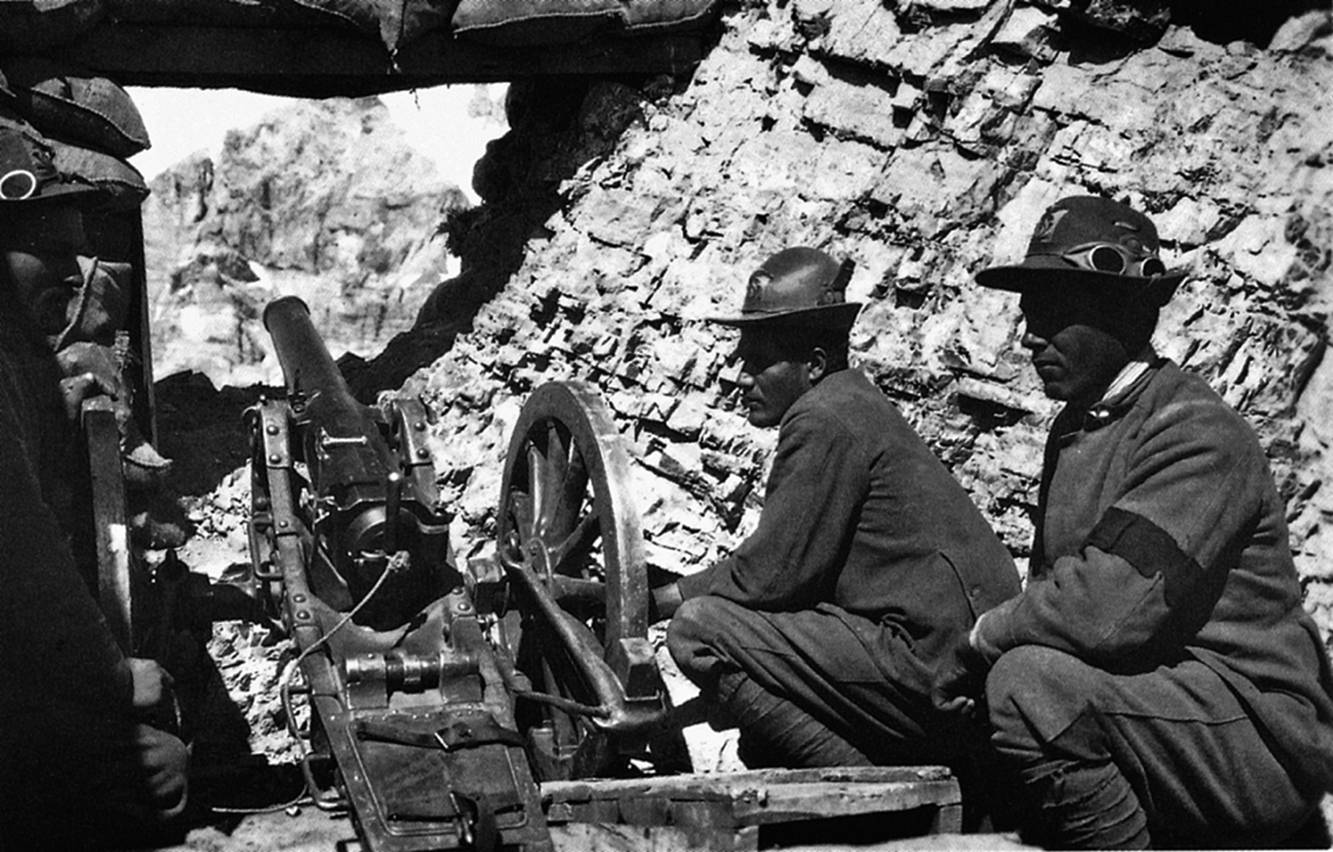
The last document of this episode is a short passage taken from the memories of Italian soldier Giacomo Pesenti (see episode #10). He once was on watch duty with two other soldiers on a ridge of the Königsspitze (Gran Zebrù), on the border between Sud Tirol and Lombardy. They wanted to shoot against the Austrian trench to let them know they were awake and alert, but as soon as they pulled the trigger they were struck by lightning. Pesenti says the weather was not stormy, and there was only one single black cloud above them. He was thrown against a wooden balk and hit his head, but one of his comrades was less lucky, and was seriously injured. Pesenti informed his headquarters and unplugged the telephone to avoid attracting more lightning.
The short extract comes from the book “La Grande Guerra in Lombardia”, by Giuseppe Magrin.
-Credits-
Editing: Eva Schmidhuber, Matteo Coletta.
Commentary: Matteo Coletta.
Voices in this episode: Norbert K. Hund as Fritz Weber, Matteo Coletta as Michele Campana and Giacomo Pesenti, Roman Reischl as Thomas Bergner.
Jingle:
Music: Gregoire Lourme, “Fire arrows and shields”
Concept: Matteo Coletta
Voices: Hannes Hochwasser, Matteo Coletta, Roman Reischl, L.J. Ounsworth, Norbert K. Hund.
